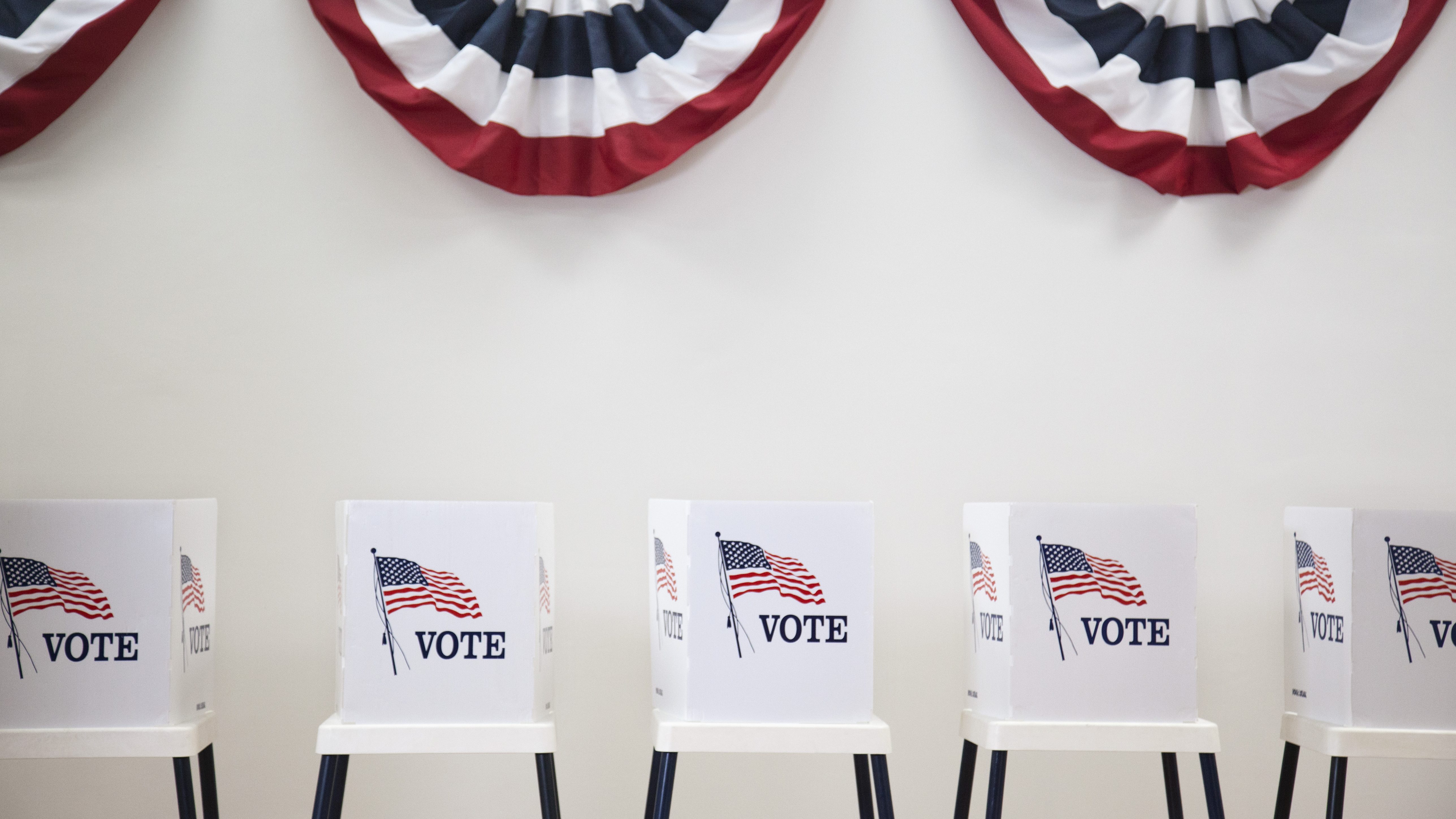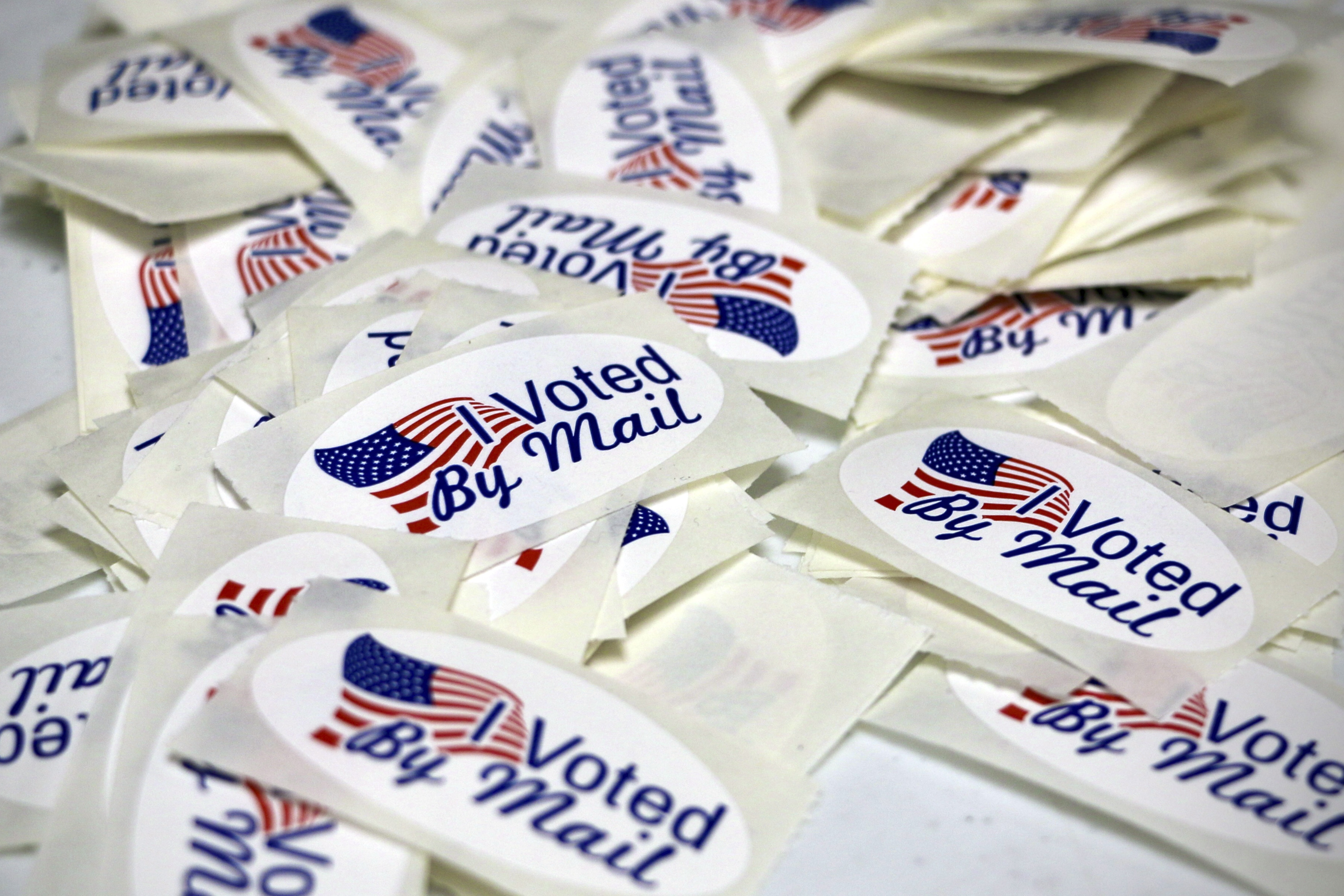From the mass resignations of poll workers to polling locations opening late or not at all, Chicago is facing questions over whether it has the infrastructure necessary for a smooth voting day this November.
And while Illinois and Chicago are not experiencing the kinds of voting issues seen elsewhere across the country, there are concerns after the city’s primary election had major issues earlier this summer.
NBC 5 Investigates found the issues barred some community members from casting their ballots earlier this year, when they arrived at their assigned polling location only to find that it was closed due to a lack of workers to staff it.
More than a hundred poll workers resigned less than 24 hours before the primary, and nearly 1,800 simply did not show up to work at their assigned polling location, NBC 5 found.
Feeling out of the loop? We'll catch you up on the Chicago news you need to know. Sign up for the weekly Chicago Catch-Up newsletter here.
Since then, NBC 5 has been examining what went wrong with the city’s primary day election and whether the Chicago Board of Elections could have been better prepared.
City officials acknowledge the severity of the issues and blame some of the problems on moving the primary election date to June, as well as overall low turnout for the primary.
Civil rights advocates point out that these kinds of problems are solvable when there's stronger community engagement efforts on the city’s part ahead of an election in order to bridge the gaps that voters face.
Now, on the first day of early voting for Chicagoans, many are focused on the general election on Nov. 8 and whether the city’s plan for responding to these problems – a precinct consolidation that will decrease the number of election judges or poll workers needed citywide – is the right answer.
'Organized Chaos'
From the outside, all may have appeared normal this past primary election day in the city of Chicago, but behind the scenes, poll workers and members of the public had a different experience.
"It was pretty horrific, to say the least," said Allison Gonsoulin, an election judge for the city who was assigned to the ninth precinct in the 23rd Ward on Chicago's Near Southwest Side.
Election judges are a key component to how Chicago’s elections operate. Gonsoulin was a returning election judge for the city, originally on stand-by as a substitute judge if needed that day.
Around noon on primary day, she said she was assigned to the Irene Hernandez Middle School polling location in the Gage Park neighborhood.
Gonsoulin said she’d heard that the school had been closed up to that point due to no election judges showing up for work.
And what she experienced shocked her.
"Polls are to open at 6 a.m. By the time we got everything set up, now, it's almost 3 p.m.," Gonsoulin said, adding that there were still problems. "We couldn't find the most important forms. There was no signage out here to indicate that this is a polling place. It was organized chaos."
Adding to that confusion, Gonsoulin said she and others who were assigned to that ward precinct location only spoke English, and many Spanish-speaking voters had questions they couldn't assist with.
Gonsoulin said, "That was a disservice to those people because English is my first language."
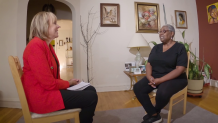
What Gonsoulin experienced in that ward was not an anomaly, NBC 5 found.
On primary day, NBC 5 reporter Christian Farr observed some polling locations in the 32nd Ward on the Near North Side were closed and reportedly turned away residents trying to cast their ballots.
In front of one polling place, a voter held a sign that read, "No Election Judges = Voter Suppression."
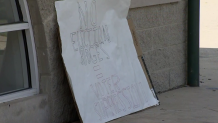
Indeed, NBC 5 Investigates found a majority of the issues reported on that primary day were likely the result of a mass resignation of election judges in the days and weeks leading up to the election.
Data obtained by NBC 5 show one in three judges resigned, including 604 judges resigning in the week leading up to primary day. Of those, at least 114 judges resigned fewer than 24 hours before the primary, according to dated resignation letters reviewed by NBC 5.
The Board of Elections' records also show more than 1,780 election judges simply did not show up to work at their polling location on the day of the primary.
In all, the records show a total of more than 3,200 judges resigning or not showing up to work on primary pay, yet the city only had 257 substitute or stand-by judges, like Gonsoulin, to fill those vacancies.
The mass resignations led to at least 73 polling locations opening late, or worse, not at all, a spokesperson for the Board of Elections said.
Formal letters reviewed by NBC 5 suggest the 32nd Ward was hit the hardest by the resignations, followed by the 47th Ward in Ravenswood and the 42nd Ward downtown.
More than 350 judges who resigned or were "no shows" were marked as bilingual judges, speaking languages that are primarily used in the wards and precincts they would have been assigned to.
These are some of the many facts worrying voting advocates like Ami Gandhi with the Chicago Lawyers’ Committee for Civil Rights.
"Voters in Chicago had a lot of confusion during the June primary," Gandhi told NBC 5.
On election days, Gandhi’s organization operates a nonpartisan voter hotline for Chicagoans to phone in any issues observed.
This past primary, those phones were ringing off the hook, with more calls than in previous years.
"We received a high volume of calls all throughout the day from Chicago voters, particularly in vulnerable communities, who were having a hard time," Gandhi said. "This, despite [voters] doing their research, despite showing up to vote, they were having a hard time getting to a functional polling place."
Emails obtained via a Freedom of Information Act request show advocacy groups like Gandhi’s, – and even some political campaigns – were voicing their concerns to the Chicago Board of Elections all throughout primary day.
"A whole mess of polling places in my clients’ district are not open yet," one email from a campaign read.
Another indicating, "the [Board of Elections phone] lines to report this have also been swamped."
In one instance, election officials responded saying, "We are working on putting out several fires right now."
NBC 5 shared our findings with the Board of Elections and they confirmed the issues and their severity, while acknowledging what they believe is the best plan to fix it moving forward.
'These problems are solvable'
Chief Spokesperson for the Chicago Board of Elections Max Bever confirmed to NBC 5 that the city is doing everything it can to not have a repeat of what happened on primary day.
"What we did face on June 28 was a shortage of election judges, which did lead to some delays in polling places opening," Bever said. "That is not something that we'd like to see happen again. … It’s been on our mind heading into the Nov. 8 general election.”
Why were there so many election judges who resigned? To try to answer that, NBC 5 combed through 1,138 resignation letters from election judges who formally resigned that day.
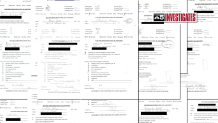
Surprisingly, a COVID illness was not the main reason.
A majority of the judges who resigned formally indicated they were out of town or had a second job they couldn’t take the day off from. Hundreds did not list a specific reason for why they were resigning.
The Board of Elections believes the reason may have come from having the primary day election in June, on a date that judges were not prepared for, as well as overall lower turnout for a primary election.
“When it comes to getting election judges, it's often the same as turnout for an election,” Bever said. “The summer date on June 28 was new for a lot of voters but also for a lot of election judges.”
Heading into the general election, Bever believes two words may provide a solution to the issues: precinct consolidation.
“We do have some benefits heading into this election. We hopefully will see some benefits from precinct consolidation because we are staffing a lower target number of election judges,” Bever said.
In the past, the city said it needed about 10,000 judges to staff its precincts. With precinct consolidation, the Board of Elections says it only needs about 6,500 judges, drastically lowering the demand citywide.
As of Oct. 20, Bever said the city has 7,000 judges signed up to work the general election, with more than 900 applications pending. That includes nearly 1,300 election judges who are high school students, Bever said.
The city hopes to bolster those numbers in the next few weeks leading up to Nov. 8.
Interested in signing up to be an Election Judge for the city of Chicago? Learn more by clicking here.
“We've got less precincts heading into the next election, not necessarily less polling places, just less precincts,” Bever said.
However, some organizations believe precinct consolidation could reduce access to voting at a time when it’s so vital.
One future mayoral challenger even went as far as to denounce the move as “voter suppression,” according to the Chicago Sun-Times. The city argues it was legally required to consolidate after 2020 census findings led to the drawing of new ward and district lines.
Still, organizations like the Chicago Lawyers’ Committee for Civil Rights fear these steps do not address chronic issues, and that more community engagement is the right answer.
“Lowering the bar for how many election judges will be ready to serve on election day will not solve the chronic issues of barriers to voter access for Black and Brown community members,” Gandhi said.
“These problems are solvable … but there definitely needs to be more preparation and more meaningful community engagement to bridge that gap that people faced, for example, in the June primary election,” Gandhi said.
Gandhi also encourages voters experiencing problems on Election Day to call their non-partisan hotline: 1-866-OUR-VOTE. For more information, click here.
Gonsoulin was at first wary about signing up as an election judge again, given what she saw in June. Now, believing in the critical role that judges play, she’s planning to sign up for November and hopes others will follow her lead.
“Our election, our democracy, is in a state of crisis, if you ask me right now,” Gonsoulin said. “The [Chicago Board of Elections] needs to have their system work right as they’re telling people to get out there and vote.”

